
Find Help
More Items From Ergsy search
-

What are Nut Allergies?
Relevance: 100%
-

Is there a cure for nut allergies?
Relevance: 99%
-
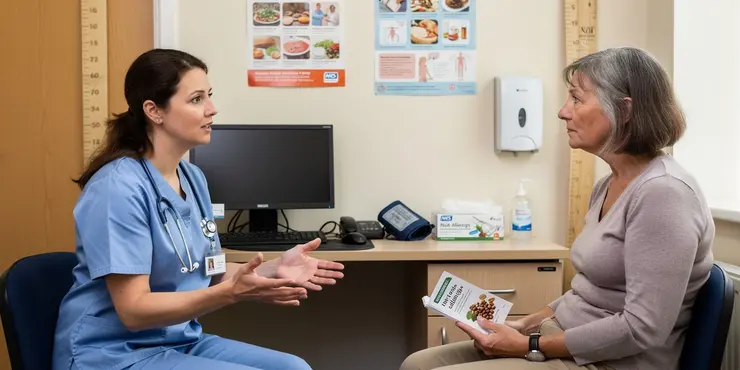
Are nut oils safe for people with nut allergies?
Relevance: 96%
-

Can nut allergies be outgrown?
Relevance: 96%
-
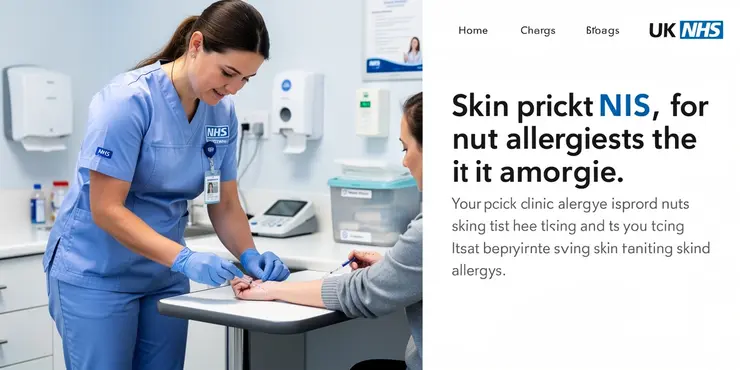
How is a nut allergy diagnosed?
Relevance: 94%
-
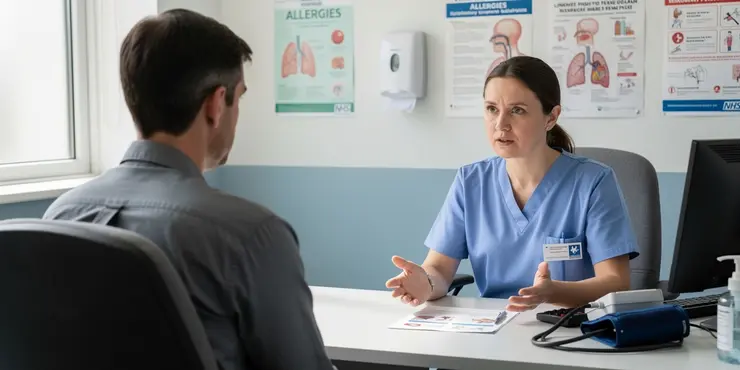
What are the symptoms of a nut allergy?
Relevance: 93%
-

How can nut allergies be managed?
Relevance: 91%
-

What types of nuts can cause allergies?
Relevance: 89%
-

What is the difference between a nut allergy and intolerance?
Relevance: 88%
-

Can nut allergies develop later in life?
Relevance: 88%
-

What should I do if I think I have a nut allergy?
Relevance: 88%
-
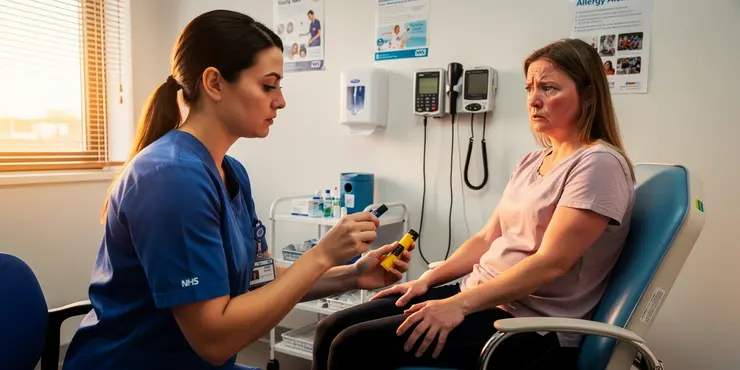
Is epinephrine the only treatment for severe nut allergy reactions?
Relevance: 80%
-

What should I tell my family and friends about my nut allergy?
Relevance: 80%
-

Can tree nuts and peanuts cause cross-reactions?
Relevance: 65%
-

Is it safe to eat foods labeled as 'may contain nuts'?
Relevance: 63%
-

What foods should I avoid if I have a nut allergy?
Relevance: 62%
-

Are there any recent treatments or research developments for nut allergies?
Relevance: 62%
-
How can I prevent cross-contamination with nuts in the kitchen?
Relevance: 61%
-
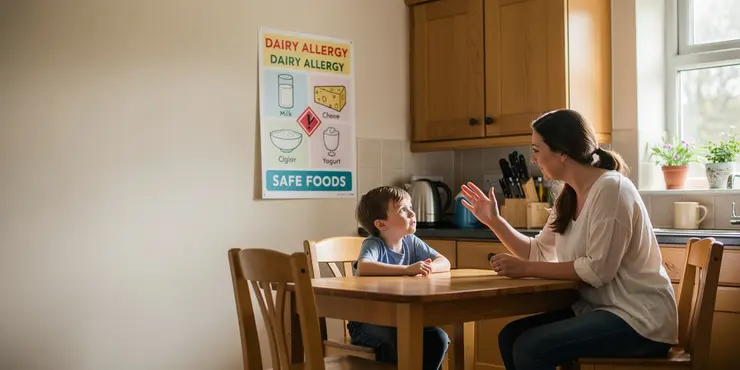
What are Dairy Allergies?
Relevance: 48%
-

Dealing with Seasonal Allergies
Relevance: 47%
-

How are food allergies managed in UK schools?
Relevance: 46%
-

Can I get the COVID jab if I have allergies?
Relevance: 42%
-

Can children with nut allergies safely attend school?
Relevance: 40%
-
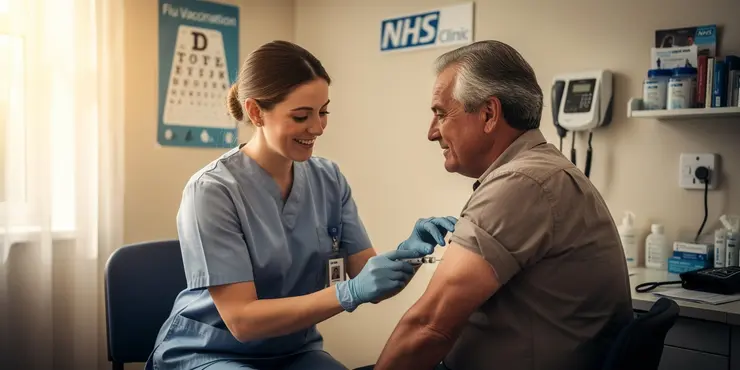
What if I have an egg allergy, can I still get the flu vaccine?
Relevance: 38%
-
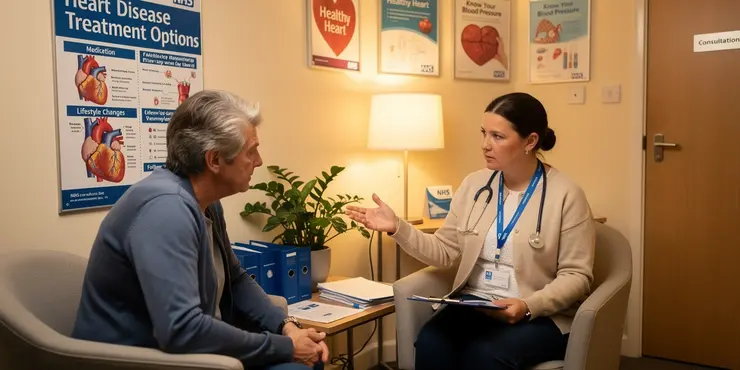
Can patients with drug allergies still take heart disease medications?
Relevance: 38%
-

How are special dietary requirements catered for in school meals?
Relevance: 28%
-

What foods can trigger nettle rash?
Relevance: 27%
-
Can orange juice be allergenic?
Relevance: 26%
-

Can diet affect eczema?
Relevance: 21%
-

Is it possible to be allergic to the sun?
Relevance: 21%
-

What is anaphylaxis?
Relevance: 19%
-

Do pets contribute to hay fever?
Relevance: 19%
-

How can I reduce my exposure to pollen?
Relevance: 19%
-

How can I prevent eczema flare-ups?
Relevance: 18%
-

Nettle rash
Relevance: 17%
-

What happens if I have special dietary needs?
Relevance: 17%
-
What types of fats are healthy to consume?
Relevance: 16%
-

What foods are high in fiber?
Relevance: 16%
-
Can I meet my fat requirements from plant-based sources?
Relevance: 15%
-
Are there specific fats that support heart health?
Relevance: 15%
What Are Nut Allergies?
Nut allergies are a type of food allergy characterised by an overreaction of the immune system to proteins found in certain nuts. For individuals with nut allergies, consuming or even coming into contact with nuts can trigger a range of symptoms, from mild to life-threatening. Nut allergies are common in the UK and affect both children and adults.
Types of Nut Allergies
Nut allergies can be broadly categorised into two types: peanut allergies and tree nut allergies. Peanut allergies are more prevalent and involve an allergic reaction to the proteins in peanuts, which are legumes. Tree nut allergies concern nuts like walnuts, almonds, hazelnuts, and cashews. It is possible to be allergic to one type of nut and not another.
Symptoms of Nut Allergies
Symptoms of nut allergies can vary widely between individuals. Common reactions include hives, swelling, stomach pain, and vomiting. Severe reactions can lead to anaphylaxis, a life-threatening condition that requires immediate medical attention. Anaphylaxis symptoms may include difficulty breathing, a rapid drop in blood pressure, and loss of consciousness.
Diagnosis and Management
Diagnosis of nut allergies typically involves a combination of medical history evaluation, skin prick tests, and blood tests to detect specific antibodies. The primary treatment is strict avoidance of nuts and nut-containing products. Those diagnosed with nut allergies are often prescribed an adrenaline auto-injector to be used in case of severe reactions. It is crucial to read food labels carefully and be mindful when dining out.
Living with Nut Allergies
Managing nut allergies in daily life involves vigilance and preparedness. Individuals should educate themselves and others about their allergy, wear medical identification, and have an emergency action plan. Schools, workplaces, and other public spaces in the UK are increasingly adopting nut-free policies to protect those with allergies. Support from healthcare providers and allergy support groups can also be beneficial.
What Are Nut Allergies?
Nut allergies mean some people's bodies don't like nuts. Their bodies think nuts are bad, so they react. This reaction can be small or very big. Sometimes just touching nuts can cause problems. People with nut allergies need to be careful around nuts.
Types of Nut Allergies
There are two main nut allergies. One is peanut allergies. Peanuts aren't actually nuts; they are legumes. The other is tree nut allergies, which include nuts like walnuts, almonds, and cashews. Some people are allergic to one type of nut but not another.
Symptoms of Nut Allergies
People with nut allergies can feel different symptoms. They might get itchy spots, swelling, tummy pain, or throw up. Sometimes, the reaction can be very bad and they need help from a doctor. This is called anaphylaxis. It can make breathing hard and cause them to faint.
Diagnosis and Management
To find out if someone has a nut allergy, doctors can look at their health history and do skin or blood tests. If someone has a nut allergy, they need to avoid nuts. They might carry a special pen called an adrenaline auto-injector for emergencies. Reading food labels and being careful when eating out is important.
Living with Nut Allergies
People with nut allergies need to be careful daily. They learn about their allergy and tell others. Wearing medical ID and having a plan for emergencies is key. Many places like schools in the UK have rules to keep nuts away. Support from doctors and groups can help a lot.
Frequently Asked Questions
What is a nut allergy?
A nut allergy is an immune reaction to proteins found in certain types of nuts, which can cause mild to severe symptoms.
What types of nuts can cause allergies?
Common nuts that cause allergies include peanuts, almonds, walnuts, cashews, pecans, pistachios, and hazelnuts.
What are the symptoms of a nut allergy?
Symptoms can range from mild, such as hives or itching, to severe, such as difficulty breathing, anaphylaxis, or swelling.
How is a nut allergy diagnosed?
Nut allergies are diagnosed through medical history, skin prick tests, and blood tests that measure allergic antibodies.
Can nut allergies be outgrown?
Some people may outgrow nut allergies, especially children with peanut allergies, but it varies for each individual.
Is there a cure for nut allergies?
Currently, there is no cure for nut allergies. Management involves avoiding nuts and having a treatment plan for accidental exposure.
What should I do if I think I have a nut allergy?
Consult with an allergist or healthcare provider for proper diagnosis and management strategies.
How can nut allergies be managed?
Management includes avoiding nuts, reading food labels carefully, and carrying emergency medication like epinephrine.
What is anaphylaxis?
Anaphylaxis is a severe and potentially life-threatening allergic reaction that requires immediate medical attention.
Can tree nuts and peanuts cause cross-reactions?
Yes, while peanuts are legumes and tree nuts are seeds, cross-reactivity may occur due to similar protein structures.
What foods should I avoid if I have a nut allergy?
Avoid foods containing or contaminated with nuts and carefully check labels for nut-derived ingredients.
Are nut oils safe for people with nut allergies?
Unrefined nut oils can contain nut proteins and should be avoided, while highly refined oils may be safe but should be verified with a doctor.
Can nut allergies develop later in life?
Yes, while often developed in childhood, nut allergies can also appear in adults who previously did not show any symptoms.
What is the difference between a nut allergy and intolerance?
Allergies involve the immune system and can cause severe reactions, while intolerances generally have milder, digestive symptoms.
Is epinephrine the only treatment for severe nut allergy reactions?
Epinephrine is the first-line treatment for anaphylaxis. Other treatments may support, but epinephrine should always be administered immediately.
Can children with nut allergies safely attend school?
Yes, with appropriate precautions like allergy action plans, teacher awareness, and availability of emergency medication.
Are there any recent treatments or research developments for nut allergies?
Research includes therapies like oral immunotherapy and biologics, aiming to desensitize individuals or reduce reactions.
How can I prevent cross-contamination with nuts in the kitchen?
Use separate utensils and cookware, clean surfaces thoroughly, and designate nut-free zones or equipment.
What should I tell my family and friends about my nut allergy?
Inform them about the severity, necessary precautions, and emergency procedures, including how to administer epinephrine.
Is it safe to eat foods labeled as 'may contain nuts'?
It's generally best to avoid these foods unless confirmed safe by an allergist, as they may have potential cross-contamination.
What is a nut allergy?
A nut allergy means nuts can make someone sick. Their body does not like nuts.
If they eat nuts, they might feel bad. Sometimes, they could feel itchy or find it hard to breathe.
People with nut allergies should not eat nuts. They should read food labels to stay safe.
It can be helpful to carry a special medicine called an EpiPen. This can be used if they accidentally eat nuts.
If you do not know if something has nuts, ask an adult for help.
Some people have nut allergies. This means their body doesn't like certain nuts. This can make them feel a little bit sick or really sick.
What nuts can make people sick with allergies?
Some nuts can make people sick. These nuts include peanuts, almonds, walnuts, cashews, pecans, pistachios, and hazelnuts.
What happens if you are allergic to nuts?
If you have a nut allergy, your body does not like nuts. Here are some things that might happen:
- Your skin might get red or bumpy.
- You might start sneezing or have a runny nose.
- Your eyes could get itchy or watery.
- You may feel like your throat is tight or you have trouble breathing.
- Your tummy might hurt or you could feel sick.
If you think you have a nut allergy, tell a grown-up. They can help you see a doctor.
To make reading easier, try using a ruler or your finger to follow the words.
Signs of an allergy can be small or big. Small signs might be things like itchy skin or a rash. Big signs can be very serious, like trouble breathing, swelling, or a reaction called anaphylaxis. Anaphylaxis is when you have a very strong and dangerous reaction.
How do doctors find out if someone is allergic to nuts?
Doctors find out if you have a nut allergy by asking about your health, doing a skin test, and testing your blood.
Can you stop being allergic to nuts as you get older?
Some kids might stop having nut allergies when they get older. This can happen with peanut allergies too, but it is different for everyone.
Can nut allergies be fixed?
Right now, there is no way to completely get rid of nut allergies. But you can take steps to help manage them.
Here are some tips:
- Avoid eating nuts or foods with nuts in them.
- Read food labels to check for nuts.
- Tell people about your allergy, like friends, family, and teachers.
- Carry medicine called an epinephrine auto-injector (like an EpiPen) in case of a reaction.
- See a doctor to help you manage your allergy.
Right now, there is no way to make nut allergies go away. You have to stay away from nuts and have a plan if you accidentally eat them.
What to Do if Nuts Make You Feel Sick
If you think nuts make you feel sick, tell an adult you trust, like a parent or a teacher.
You might need to see a doctor. The doctor can help you understand if you have a nut allergy.
Stay away from foods with nuts. Look at food labels to check for nuts.
Use pictures or symbols to help remember which foods to avoid.
Always keep a phone with emergency numbers close by, just in case you need help.
These steps can keep you safe and healthy!
Talk to a doctor who knows about allergies. They will help you find out what is wrong and tell you how to feel better.
How can you manage nut allergies?
If you have a nut allergy, here are ways to stay safe:
- Don't eat nuts or foods with nuts.
- Read all food labels to check for nuts.
- Tell others about your allergy.
- Carry medicine called an EpiPen for emergencies.
- Ask your doctor for more advice and help.
Tools that might help you:
- Use apps that warn about nuts in foods.
- Ask family and friends to help you avoid nuts.
To stay safe, do not eat nuts. Always look at food labels to check if they have nuts. Keep medicine like an epinephrine pen with you in case of an emergency.
What is anaphylaxis?
Anaphylaxis is a very bad allergic reaction. It can make it hard to breathe and can be very dangerous. It needs help from a doctor right away.
If someone has anaphylaxis, they might need to use a special medicine called an EpiPen. This helps them feel better quickly.
Signs of anaphylaxis can be:
- Lots of itching or hives
- Swelling, especially on the face or throat
- Finding it hard to breathe
- Feeling dizzy or faint
If you think someone has anaphylaxis, call 911 or get an adult to help right away.
To learn more, you can use tools like picture cards or watch videos about anaphylaxis.
Anaphylaxis is a very bad allergic reaction. It can be dangerous and needs a doctor right away.
Can tree nuts and peanuts cause cross-reactions?
Sometimes, when you eat tree nuts or peanuts, your body might think they are the same. This can make your body react, like when you have allergies. It's like getting mixed up between two things that look the same.
Here's how to stay safe:
- Always ask if nuts are in your food.
- Tell a grown-up if you feel funny after eating nuts.
- Use picture cards or a help app on your phone to check for nuts.
Yes, peanuts are a type of legume, and tree nuts are seeds. But sometimes people who are allergic to peanuts can also react to tree nuts because the proteins in them are a bit alike.
What foods should I stay away from if I cannot eat nuts?
If you cannot eat nuts, you should not eat foods with nuts in them. Here are some tips to help:
- Check food labels to see if they have nuts.
- Be careful with cookies, cakes, and ice cream as they might have nuts.
- Stay away from nut butters like peanut butter.
- Ask what is in food at restaurants.
- Use apps to help read labels and find safe foods.
If you are not sure, it is best not to eat it. Always keep medicine ready in case you have a reaction.
Do not eat foods that have nuts in them. Check the labels on foods to make sure there are no nuts or nut ingredients.
Can people with nut allergies use nut oils?
Unrefined nut oils have nut proteins. People should not use them if they have nut allergies. Highly refined oils might be okay, but it is important to ask a doctor first.
Can you become allergic to nuts when you are older?
Yes, nut allergies usually start when you are a child, but they can also happen to grown-ups.
What is the difference between a nut allergy and nut intolerance?
A nut allergy means your body reacts strongly to nuts. It can make you feel very sick. It's serious and can be dangerous.
A nut intolerance is different. It means nuts upset your stomach or make you feel unwell, but it's not as serious as an allergy.
If you think you have a problem with nuts, talk to a doctor. They can help you find out if it is an allergy or intolerance.
Use pictures or lists to help you understand this. You can also ask an adult to explain it to you.
Allergies happen when the body's defense system reacts and can make you very sick. Intolerances usually cause tummy problems and are not as serious.
Is epinephrine the only way to help with bad nut allergy reactions?
If someone is very allergic to nuts, they might have a big reaction. This can be scary. The best way to help is with a shot called epinephrine.
Sometimes, people also need to go to the hospital to feel better. The doctor can give more help there.
A person with a nut allergy should always have an epinephrine shot nearby.
If you know someone with a nut allergy, remind them to carry their epinephrine.
There are even special bracelets that tell people about nut allergies in case of an emergency.
Epinephrine is the most important medicine for a severe allergy attack. Other medicines can help, but you should always use epinephrine first.
Can kids with nut allergies go to school safely?
Yes, kids with nut allergies can go to school safely. Schools can help keep them safe.
Some ways schools can help:
- No nuts allowed in school snacks or meals.
- Have a plan if a kid eats nuts by mistake.
- Make sure teachers and kids know about the allergy.
Parents can talk to the school about their child's needs.
Some kids wear a bracelet that says they have an allergy.
If you're worried, talk with the teacher or staff for more help.
Yes, it is safe if we take care of a few things. We should have a plan for allergies, make sure the teacher knows, and have emergency medicine ready.
Are there new ways to help people with nut allergies?
Doctors are always looking for new ways to help people who can't eat nuts. They do a lot of studies to find new ideas. It can take time to find the right answers.
If you have a nut allergy, talk to your doctor. They can tell you about the newest ways to stay safe.
Using simple tools like tablets or phones can help you learn more. You can also ask someone to help you understand the information.
Scientists are studying new treatments to help with allergies. These treatments include taking medicine by mouth and special drugs called biologics. The goal is to help people get used to the allergens or have smaller allergic reactions.
How can I stop nuts from mixing with other foods in the kitchen?
Here are some tips to keep things safe:
- Use separate bowls, plates, and tools for foods with nuts.
- Keep nuts in a special place away from other foods.
- Wash your hands after touching nuts.
- Clean the kitchen counters and table after using nuts.
- Use labels to show which foods have nuts.
If you need more help, try using picture labels or stickers in the kitchen. This can remind you what to do. Talk to someone you trust if you have questions.
Use different spoons, forks, and pots. Clean tables and counters well. Have areas or tools that are always nut-free.
How do I talk to my family and friends about my nut allergy?
Tell them how serious it is, what to do to stay safe, and what to do in an emergency, including how to use an epinephrine pen.
Is it okay to eat food that says 'may contain nuts'?
Some foods have a warning that says 'may contain nuts'. This means there could be a little bit of nuts in the food. It is important to be careful.
If you have a nut allergy, ask a grown-up for help. They can help you decide if it is safe to eat.
Read the label with someone who knows about allergies. You can also use apps that help with understanding food labels.
It is usually best not to eat these foods unless a doctor says they are safe. They might be mixed with things you are allergic to.
Useful Links
This website offers general information and is not a substitute for professional advice.
Always seek guidance from qualified professionals.
If you have any medical concerns or need urgent help, contact a healthcare professional or emergency services immediately.
Some of this content was generated with AI assistance. We’ve done our best to keep it accurate, helpful, and human-friendly.
- Ergsy carfully checks the information in the videos we provide here.
- Videos shown by Youtube after a video has completed, have NOT been reviewed by ERGSY.
- To view, click the arrow in centre of video.
- Most of the videos you find here will have subtitles and/or closed captions available.
- You may need to turn these on, and choose your preferred language.
- Go to the video you'd like to watch.
- If closed captions (CC) are available, settings will be visible on the bottom right of the video player.
- To turn on Captions, click settings .
- To turn off Captions, click settings again.
More Items From Ergsy search
-

What are Nut Allergies?
Relevance: 100%
-

Is there a cure for nut allergies?
Relevance: 99%
-

Are nut oils safe for people with nut allergies?
Relevance: 96%
-

Can nut allergies be outgrown?
Relevance: 96%
-

How is a nut allergy diagnosed?
Relevance: 94%
-

What are the symptoms of a nut allergy?
Relevance: 93%
-

How can nut allergies be managed?
Relevance: 91%
-

What types of nuts can cause allergies?
Relevance: 89%
-

What is the difference between a nut allergy and intolerance?
Relevance: 88%
-

Can nut allergies develop later in life?
Relevance: 88%
-

What should I do if I think I have a nut allergy?
Relevance: 88%
-

Is epinephrine the only treatment for severe nut allergy reactions?
Relevance: 80%
-

What should I tell my family and friends about my nut allergy?
Relevance: 80%
-

Can tree nuts and peanuts cause cross-reactions?
Relevance: 65%
-

Is it safe to eat foods labeled as 'may contain nuts'?
Relevance: 63%
-

What foods should I avoid if I have a nut allergy?
Relevance: 62%
-

Are there any recent treatments or research developments for nut allergies?
Relevance: 62%
-
How can I prevent cross-contamination with nuts in the kitchen?
Relevance: 61%
-

What are Dairy Allergies?
Relevance: 48%
-

Dealing with Seasonal Allergies
Relevance: 47%
-

How are food allergies managed in UK schools?
Relevance: 46%
-

Can I get the COVID jab if I have allergies?
Relevance: 42%
-

Can children with nut allergies safely attend school?
Relevance: 40%
-

What if I have an egg allergy, can I still get the flu vaccine?
Relevance: 38%
-

Can patients with drug allergies still take heart disease medications?
Relevance: 38%
-

How are special dietary requirements catered for in school meals?
Relevance: 28%
-

What foods can trigger nettle rash?
Relevance: 27%
-
Can orange juice be allergenic?
Relevance: 26%
-

Can diet affect eczema?
Relevance: 21%
-

Is it possible to be allergic to the sun?
Relevance: 21%
-

What is anaphylaxis?
Relevance: 19%
-

Do pets contribute to hay fever?
Relevance: 19%
-

How can I reduce my exposure to pollen?
Relevance: 19%
-

How can I prevent eczema flare-ups?
Relevance: 18%
-

Nettle rash
Relevance: 17%
-

What happens if I have special dietary needs?
Relevance: 17%
-
What types of fats are healthy to consume?
Relevance: 16%
-

What foods are high in fiber?
Relevance: 16%
-
Can I meet my fat requirements from plant-based sources?
Relevance: 15%
-
Are there specific fats that support heart health?
Relevance: 15%


